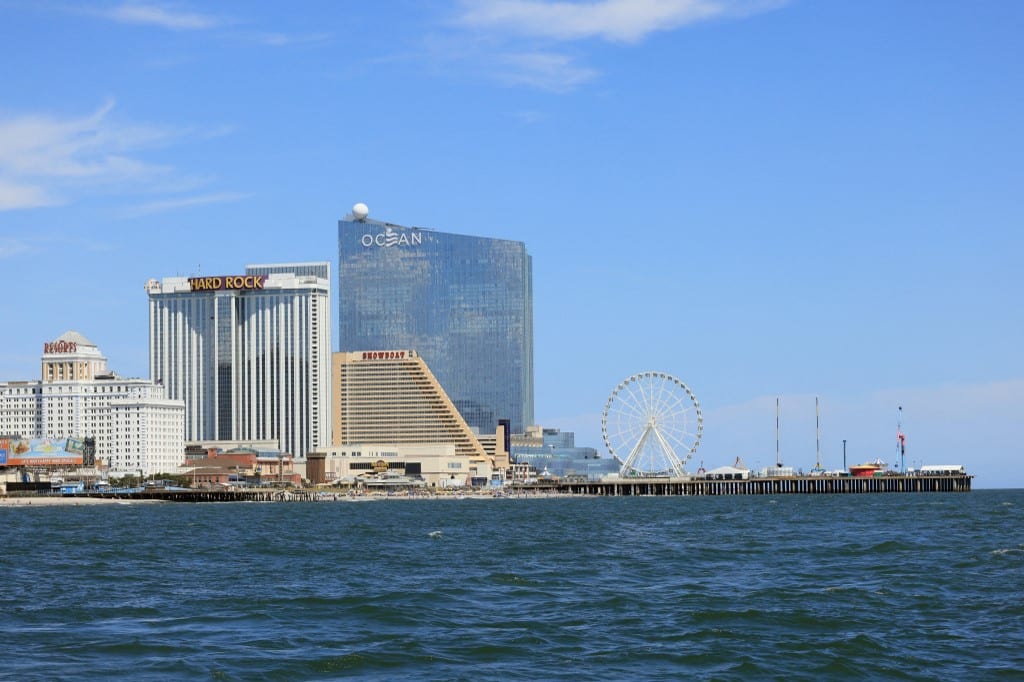
Many Atlantic City casino workers have been advocating for abolishing smoking throughout the area’s casinos for years, and late last week they demonstrated outside a hotel where New Jersey Governor Phil Murphy was scheduled to speak.
Smoking Ban Sought
Casino workers have managed to get smoking abolished in many commercial and tribal casinos throughout the country. However, Atlantic City is not one of those jurisdictions, but it should be noted that some progress has been made as lawmakers have mandated that 75% of the casino floors must be smoke-free. But that restriction has been in place for 18 years, and casino workers have been vigilant in their quest to end smoking entirely in all enclosed casino areas.
Casinos have an exemption to New Jersey’s clean air law, which is why smoking persists, but workers argue that secondhand smoke is causing a wide range of diseases, from emphysema to cancer. On Thursday of last week, casino workers showed up outside of a hotel where Governor Phil Murphy was scheduled to speak to appeal to the state’s highest authority to grant them their request.
But Murphy has stated on more than one occasion that if a casino non-smoking bill arrived on his desk, he would happily sign it.
“I have an enormous amount of sympathy with them; they’re somehow blaming this on me,” Murphy said on the show. “I just want to repeat what I have been saying for about five years: If a bill comes to my desk that bans smoking in casinos in Atlantic City, I will sign it. Period. I am not equivocating, and I have not equivocated about that. The way to solve this is through legislation.”
“It’s horrible when you have three, four, or five people blowing smoke in your face,” said Sandy Smolen, a dealer at the Borgata casino for the past five years and a 40-year veteran of the industry. “You can’t get away from it. You go home with a cough you didn’t have that morning.”
Lawsuit Filed
In April, a coalition comprised of the United Auto Workers union, which represents workers at Bally’s, Caesars, and Tropicana casinos, and a group of casino workers trying to get the smoke out of their workplaces filed a lawsuit in New Jersey Superior Court challenging the casinos’ exemption to the state’s Clean Air Act.
“Today, we get off our knees and stand up!” shouted Lamont White, a dealer at the Borgata casino and one of the leaders of the employee anti-smoking movement. “We offered them the carrot, and now they get the stick!”
Ray Jensen Jr., assistant director of the local UAW office, said, “If the legislators in Trenton won’t do their jobs, we’re going to take the decision out of their hands and into a courtroom.”
Casino operators are adamantly opposed to any change in the existing law, insisting that a smoking ban would drive their smoking customers into the arms of their competitors in neighboring states that permit smoking. They suggest it would lead to a decrease in their bottom lines and ultimately a loss of jobs, which would decimate the gaming industry in Atlantic City.
However, not all unions and Boardwalk casino workers want smoking abolished. Some believe the industry is suffering from post-COVID effects and fear anything that could negatively impact the revenues should be a non-starter.
Donna DeCaprio, president of Local 54 of the Unite Here casino workers union, said, “Alarm bells should be ringing in Atlantic City and in Trenton as to both the short-term and long-term negative economic trends. Representatives in the New Jersey Legislature must understand the perilous economic situation at hand for my members, and indeed all workers in Atlantic City.”






